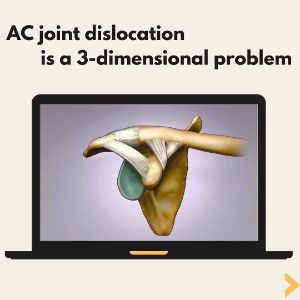Limited shoulder mobility can significantly impact daily activities, causing discomfort and hindering a wide range of motions. Several factors can contribute to restricted shoulder mobility, each stemming from various anatomical, structural or functional issues within the shoulder joint and surrounding tissues.
1. Rotator Cuff Injuries
The rotator cuff comprises a group of muscles and tendons stabilizing the shoulder joint. Injuries or tears in these tendons, often due to overuse, trauma or degeneration, can lead to pain, weakness, and limited shoulder movement.
2. Frozen Shoulder (Adhesive Capsulitis)
This condition involves the thickening and tightening of the shoulder capsule, restricting movement and causing stiffness. The exact cause of frozen shoulder is not always clear, but it can develop after prolonged immobilization, injury, surgery or in association with certain medical conditions.
3. Shoulder Impingement Syndrome
When the tendons of the rotator cuff become pinched or compressed between the bones of the shoulder, it can lead to impingement syndrome. This condition results in pain, inflammation and restricted movement, particularly when lifting the arm or performing overhead activities.
4. Arthritis
Shoulder arthritis, whether osteoarthritis (wear and tear) or inflammatory arthritis (such as rheumatoid arthritis), can cause joint inflammation, cartilage damage and bone changes that limit mobility and result in pain and stiffness.
5. Bursitis
Inflammation of the bursa sacs in the shoulder joint can occur due to repetitive movements, trauma, or underlying conditions. Bursitis causes pain and swelling, restricting shoulder movement and causing discomfort.
6. Tendonitis
Inflammation of the tendons in the shoulder, often due to overuse, repetitive motions, or injury, can lead to tendonitis. This condition causes pain and limited mobility, particularly during specific movements involving the affected tendons.
7. Instability or Dislocation
Recurring shoulder dislocations or instability can result in limited mobility as the ligaments and structures supporting the joint become stretched or damaged. This instability may cause the shoulder to feel loose or prone to slipping out of place.
8. Post-Surgical Complications
Following shoulder surgery, such as rotator cuff repair or joint replacement, scar tissue formation or inadequate rehabilitation can lead to stiffness and limited mobility if not addressed appropriately.
9. Muscle Weakness or Imbalance
Weakness or imbalance in the muscles surrounding the shoulder joint can affect its stability and range of motion, leading to limited mobility and potentially increasing the risk of injury.
Diagnosing the specific cause of limited shoulder mobility requires a comprehensive evaluation by an orthopedic specialist like Dr. Steven Struhl, often involving physical examinations, imaging studies (like X-rays or MRI) and sometimes, specialized tests to assess the extent of shoulder function.
Treatment for limited shoulder mobility depends on the underlying cause but may include physical therapy, anti-inflammatory medications, corticosteroid injections, activity modification, and, in some cases, surgical intervention to address severe conditions or structural issues. Rehabilitation exercises focusing on strengthening and improving flexibility play a crucial role in restoring shoulder mobility and function. Early intervention and tailored treatment plans can significantly improve shoulder mobility, reduce discomfort and enhance overall shoulder function.
If you are experiencing limited shoulder mobility and want an accurate diagnosis and treatment options, contact the office of Steven Struhl, MD – AC Joint Separation. Call Dr. Struhl’s office in NYC or Westchester, NY, to schedule your consultation.
Posted on behalf of Steven Struhl MD





